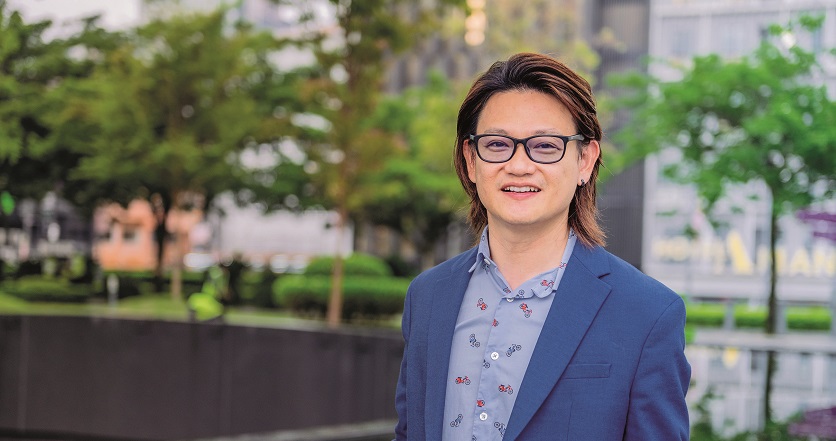Beyond Failure
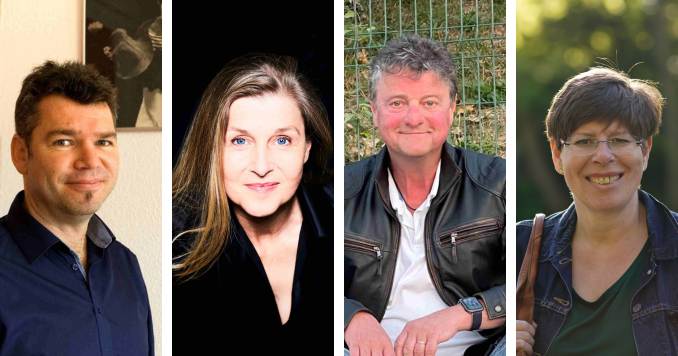
Everyone experiences failure. From the perspective of Nichiren Buddhism, however, “failure” can be an impetus for growth—an opportunity to create something of great value. Four Soka Gakkai members from Germany share their personal experiences of confronting failure through their Buddhist practice. The following are excerpts taken from an interview with the Soka Gakkai in Germany’s publication Forum.
Stefa Schibilla’s Story
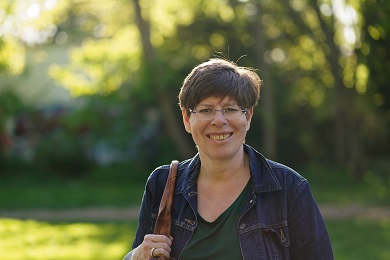
Have you ever failed in your life?
Stefa: Before I started practicing Buddhism, I failed in almost all areas of my life—school, studies, relationships. Nothing went as I wished or imagined. After I began practicing Buddhism in 1988, this fundamentally changed. Nevertheless subsequently, there was a time in my life that I would describe as a period of experiencing failure. In retrospect, I see it as a success. I can look back on this experience as something that enriched my life.
It was about my family’s financial situation. Several factors played a role. One was our purchase and restoration of a beautiful, old apartment. It had long been a great desire of mine to own and live in such an apartment. We had begun this endeavor with joy and great naïveté, without any real preparation or plan. But the costs were much higher than expected. Owing to further financial burdens, our situation worsened until nothing remained of our original joy. The apartment and everything that went with it (restoration, the obligations as owners, bills that we could no longer pay, etc.) only depressed us and caused me and my husband pure stress.
All of this hung heavily over our heads, until nothing worked anymore—our accounts were closed, we could no longer service our loans and pay the bills and hardly had any money to live on. And all this with two young children.
You describe your situation very vividly. How did you feel in the midst of it?
Stefa: To be honest, awful. Due to the excessive demands and pressure, I left letters and bills unopened. I remember many sleepless nights, nighttime panic attacks and a lot of anxiety. I had feelings of failure and helplessness when I couldn’t even buy my children an ice cream while out shopping. As a women’s leader in my local Buddhist organization, I often felt like an impostor when I spoke about the transformative power of Buddhist practice at meetings or in conversations with members. However, I had no choice but to rely on my Buddhist practice.
How did you transform your situation?
Stefa: By making a clear decision to draw a line and end this situation. It was a decision against passive suffering and for active acceptance of responsibility. The first thing I did was to suggest to my husband that we sell the apartment. He was very relieved and surprised because the apartment had been my dream. From then on, it was a matter of taking concrete steps toward a solution—selling the apartment and finding an affordable rental apartment. For the new apartment, I wanted it to be suitable for hosting my local Buddhist meetings. I was determined to use my experience to encourage other members by showing them that you can overcome any difficulty through your Buddhist practice.
I no longer felt helpless. I knew what to do and where to direct my prayer, and I felt there was deeper meaning to my situation. I chanted Nam-myoho-renge-kyo that we would find the most suitable buyer, and the buyer we finally found was able to transfer the money in one lump sum because of an inheritance.
When we hosted a Buddhist meeting in our new apartment, the members remarked how much nicer it was than our previous place. We have been living in this rented apartment for almost 20 years now and feel much more comfortable than in our old place.
You were able to turn your failure into something entirely positive!
Stefa: Yes, I have come to a deeper understanding of Buddhism and my life. I realized how superficial my understanding of Buddhism had been and recognized my arrogance. Failing was not necessarily something negative. I understood the profound significance of difficulties for deepening faith and for my development as a person. Some members later told me that they could relate to me better because of my experience.
I am deeply grateful, because it was through this experience of failure that I was able to develop real compassion and appreciation. Part of my superficial understanding was the attitude that through Buddhist practice, everything would somehow work out. I had begun the condo project with this attitude. Buddhism, however, is reason, and it also means becoming informed, making good preparations, facing reality and taking care of details. I became very aware of the workings of cause and effect.
By losing the apartment, I was also able to free myself from an illusion. I had made myself dependent on owning a prestigious apartment. This long-cherished and urgent desire for such an apartment stemmed from the life state that in Buddhism we call the world of hunger—it was about wanting to have, literally at any cost. This was also associated with a permanent dissatisfaction with my living and housing situation. In retrospect, I was able to say: “Yes, I had this great desire, and I fulfilled it. And now I know that my happiness absolutely does not depend on it.”
Olaf Schuster’s Story
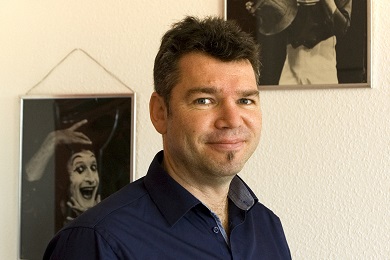
Where did you fail, Olaf? Tell us your story.
Olaf: Around 1989, almost two years after I started chanting Nam-myoho-renge-kyo and one year after I had overcome a big hurdle in my medical studies—the preliminary medical exam—I had to take the first state exam, which is a comparatively simple exam. Until that point, everything had gone well, and I approached the task with a casual attitude that, because I was chanting, everything would turn out well. Result: I failed. Of course, I was embarrassed. I quickly dismissed the situation as a blemish, thought little of it, and repeated the exam about four months later. Result: I failed again.
How did you feel at that moment?
Olaf: I was in a state of shock and questioned everything, asking, “What do I really want to do with my life, and what can I do professionally?” I had already been able to visibly transform my self-doubt through two years of practicing Buddhism. But now, I was faced with a concrete and life-changing problem.
How did you transform your situation?
Olaf: After about two weeks of shock, I decided, first, to chant Nam-myoho-renge-kyo, second, to throw myself into local Buddhist activities, and third, to self-reflect.
I had not really taken myself, my life and my value seriously until then. I had never had to struggle very much.
Something began to change in me. For the first time, I felt a desire to strive for something—to do everything I could. I was allowed to retake the test one last time. I gave it my all. I chanted regularly and abundantly and studied like never before. It started to be fun, and I learned to concentrate, to be structured and persistent. The result: I passed. Above all, I came to recognize strengths and qualities that are still helping me in my life today.
That means that you were actually able to gain something very valuable from your failure?
Olaf: This change has fundamentally shaped my life. The “blind spots” in my life ultimately came to light through practicing Buddhism and taking part in Soka Gakkai activities. I saw my negative tendencies clearly and was able to make a purposeful decision to transform myself. I understood for the first time that everything that happens to us can be turned into something positive, something valuable. This is the Buddhist concept of changing poison into medicine. This change in me also impressed my parents. Before, they had been very skeptical about Buddhism, but that changed completely.
Currently, I am very satisfied with my professional career. Every day, I challenge myself to grow—to do my human revolution.
Barbara Kaufmann’s Story

What is the first thing you think of when you hear the word “failure”?
Barbara: At first, it feels like a falling axe. There’s something so absolute about it. Then, I realize clearly that it’s a matter of perspective. Failure in the usual sense does not exist for me. Failure is a task. It is an exercise, an opportunity for reflection and development. I have been practicing Buddhism for 35 years. During this time, I have been able to change my perspective in a wide variety of situations in life and, through practicing Buddhism, experience the value of each situation.
I have understood that my feeling of failure is actually an illusion. If situations, circumstances or relationships do not correspond to how I envisioned my goal, am I a failure? Preconceived notions can be limiting. My life knows that its potential is much bigger. The mountain in front of me shrinks when I grow.
Can you share an experience?
Barbara: I have worked for 35 years as a dancer and rehearsal director in the Pina Bausch Ensemble in Wuppertal, Germany. I remember many years ago rehearsing for a particular dance solo and always failing in the same place. I simply couldn’t dance through the physically challenging sequence. This made me feel very insecure, and a sense of pressure and despair surfaced. I thought, “I’ll never make it, I’ve reached my limit.” It shattered my self-image. But then, I noticed my surroundings and felt that my colleagues and Pina wanted so much for me to dance through, for me to have a breakthrough. They totally carried me. “Now I can do it,” I said to myself. “I’ll try again, I have the courage. I am not separate from my environment.” The other dancers danced with me, and I succeeded. It was beautiful and a great success!
Would you say that as a dancer you have to be willing to fail?
Barbara: Failure sounds very hard. But in art, failure is actually essential. Creative, artistic work is always a step into the unknown. I have to be able to allow it, have to allow myself to fail. In this way, failure can be a driving force for my development. Trying something, falling down, getting up again, trying again. Without these phases, art is not conceivable, development is not possible.
The following words by the German poet and writer Hilde Domin have been with me for a long time: “I set my foot upon the air and it carried me.” That means it takes trust in one’s own capacity—confidence that every failure is followed by success. Failure is an integral part of our lives, much like the Buddhist concept of life and death from the perspective of the eternity of life. Every life includes death, and from death comes new life again. Nichiren, as well as the three presidents of the Soka Gakkai, with their strong faith, show us again and again that failure, through courageous determined action, has the ability to help one realize their true identity as a Buddha.
Viewed from this perspective, failure actually sounds like a good thing.
Barbara: Exactly, it’s “successful failure!” From a Buddhist perspective, it also includes the aspect of freedom. I don’t have to be ashamed and grieve, I can open my heart and make it expansive. This brings a lot of joy, a sense of freedom and true gratitude into life. My compassion for myself and other people has grown enormously.
Matthias Heinzerling’s Story
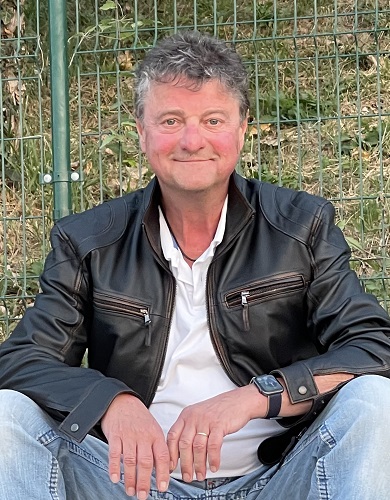
Have you ever failed in your life?
Matthias: My life consists of a flood of apparent failures, getting up again, and then winning in the end.
I have suffered from depression and panic attacks since I started attending school. I started chanting Nam-myoho-renge-kyo when I was seventeen, and by the time I was forty-seven, I had it more or less under control. However, at 45, I developed sleep disorders. I would wake up in a sweat at 4 a.m. and would spend the remaining hours in bed with headaches of the worst kind. At that time, I was working in an engineering office, was responsible for one of the publications of the Soka Gakkai in Germany, was heavily involved in my local Buddhist activities and had three small children. I wanted to overcome the negative forces in my life through my Buddhist practice, but after two years of sleep disorders, I completely collapsed at the age of forty-seven from depression. Nothing helped anymore.
After a long, painful journey, I finally had to take medication. During a period of adjusting to my medication, I almost took my life by suicide, but I got through it, always with the thought: hold out, no matter how! Nevertheless, I felt like a failure. At the same time, however, I achieved a quality of life with the medication that I had never had before. If, before, I had been able to give 100 percent, now it felt like 130 percent.
How did you get out of your “flood of failures,” as you call it?
Matthias: I changed my perspective. I kept striving to do my best and to contribute to the happiness of myself and others—to world peace.
Though failure was my constant companion, so was perseverance. After my engineering studies, for example, I got a job at a large engineering firm. I had a lot of work and was completely overwhelmed with large projects. Although I was held in high esteem in this office, I was dismissed after a year on the grounds that my technical skills were not strong enough. During the dismissal interview, tears came to my eyes, and I really felt like a failure. Fortunately, I had been practicing Buddhism for some time at that point. Using my Buddhist practice, I was able to tell myself, “Life goes on! When you fall down, don’t forget to get up again.” Within two weeks, I had a new job.
Each instance of failure and perseverance prepared me for the next challenge.
President Daisaku Ikeda’s encouragement that only through experiencing suffering can we truly understand faith and become individuals capable of savoring life has been a great source of inspiration to me since the beginning of my Buddhist practice. This perspective has been a great encouragement to me in my depressive moments, giving me hope that my suffering has meaning and that by overcoming it I can build a strong life. Suffering and joy, victory and defeat: both exist in parallel. For me, my Buddhist practice is crucial for stabilizing my mind and heart. President Ikeda’s writings encourage me with his assurance that the core point of Nichiren Buddhism is to construct an indomitable self that is not swayed by any difficulty.







